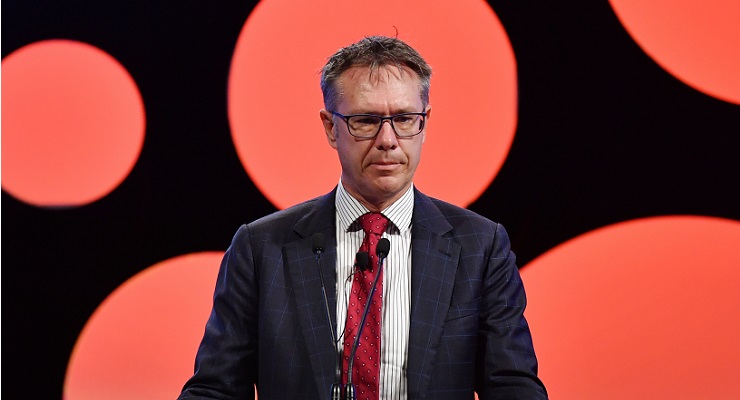
The Reserve Bank says all levels of government will have to tackle equity issues arising from surging house prices.
In a major speech on Thursday night, Reserve Bank (RBA) Deputy Governor Guy Debelle made it clear the central bank will not intervene to curb or control house prices — and made the telling point that there was a trade off between a housing boom — which we have now — and employment that met questions of equity in other ways.
Concern about house prices is rising as investors replace first home buyers in a booming housing market, taking advantage of low interest rates and taxpayer subsidies via negative gearing. The recent increase in housing affordability fueled by near-zero interest rates and a brief dip in house prices is now going into reverse after the end of the HomeBuilder package.
“Housing price rises are part of the transmission of expansionary monetary policy to the economy,” Debelle told a Perth audience last night. However:
The bank recognises that rising housing prices heighten concerns in parts of the community. Housing price rises can have distributional consequences. That is certainly an issue that needs to be considered, and there are a number of tools that can be used to address the issue. But I do not think that monetary policy is one of the tools. Monetary policy is focussed on supporting the economic recovery and achieving its goals in terms of employment and inflation.
In other words, the equity consequences of surging house prices are something for governments to address (assuming they can focus on the needs of those seeking to enter the housing market, not the wants of those already in it). It’s outside the RBA’s remit.
Debelle also makes a perhaps-obvious point that can get lost in the debate on housing prices — it’s an equity balancing act: “It is important to remember that while housing prices may not rise as fast without the monetary stimulus, unemployment would definitely be materially higher without the monetary stimulus. Unemployment clearly has large and persistent distributional consequences.”
Along with aggressive action by state governments, Australia’s island nature and the Commonwealth’s fiscal support, monetary stimulus has been crucial in delivering the kind of employment outcomes during the pandemic that we could only have dreamt of this time last year.
“Outcomes in the Australian economy have significantly exceeded even the optimistic expectations in terms of economic activity,” Debelle said. But he added a key caveat: “that is not the case on the nominal side of the economy in terms of wages and inflation. While the Australian economy has experienced better employment outcomes than most other countries, wages growth in Australia has been noticeably weaker than in many comparable economies, most notably the United States.”
That’s why “significant monetary support will be required for quite some time to come”. Regardless of the impact on house prices.









Have low interest rates really done anything for jobs?
Didn’t seem to do much before the pandemic, and the last few rate cuts would have appeared to be pointless.
As far as I can tell the low interest rates have only served to push prices higher.
*house prices higher.
Yeah, but …
The RBA only recently put out that it was not responsible for house prices (as though their hands are tied) and also have long spruiked the ‘wealth effects’ of rising house prices, which unless you are a monkey is completely risible.
If the wealth effect exists, surely the poverty effect of rising prices locking out the bootlegs and unhorsed (thank you J. P. Dunleavy) must be as large.
The RBA isn’t really directly responsible, but they are players in the market but it all got too hard so they said they’re not going to play that game anymore. It is now a second rate outfit.
The point here is that the majority in the democracy believes that wealth comes from property and therefore are not interested in doing anything about social justice in housing. In fact, the will actively vote for the opposite.
So politics cannot fix this problem either, the dispossessed will never become the majority.
It took a couple of world wars & a depression for the last lot of decent housing policies to get up & running in Australia…Who knows how many generations & what crises’ it will take for the next (if ever)ones ..